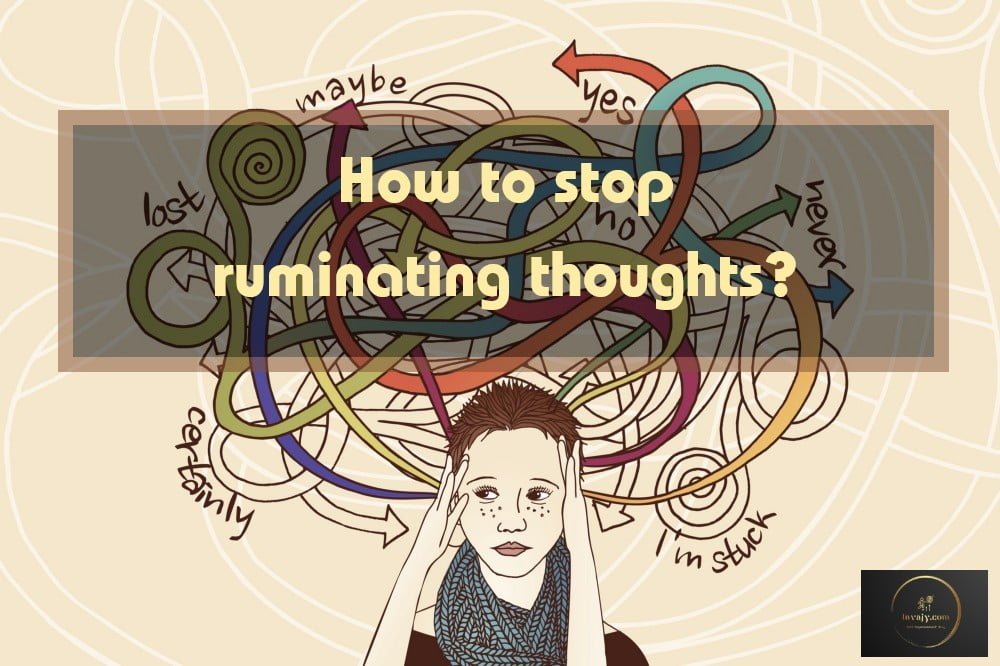How to Stop Rumination or Ruminating Thoughts?
Break free from rumination with strategies like mindfulness, engaging in activities, and challenging negative thoughts. Embrace these techniques to shift your focus and promote mental well-being.

Negative thought, a particular one or a string of depressing thoughts, comes to your mind and don’t go away. It just keeps bugging you … repeatedly… again and again. Have you ever faced such phases in life? If you are experiencing this phenomenon of incessantly thinking about the same negative and pessimistic thoughts, which are distressing or depressing, you need to pay attention on this. You may be suffering from Rumination.
Rumination Definition
Rumination is the focused attention on the symptoms of one’s distress, and on its possible causes and consequences, as opposed to its solutions. The sufferer dwells on the negative thoughts. It results in emotional pain and going deeper and deeper in the depression. Psychologists call this habit of repetitive negative thoughts “rumination”.
Risks Associated and Linked Conditions
Many mental health conditions can cause rumination, but persistent rumination may also exacerbate the symptoms of some preexisting mental health conditions. These include:
Rumination contributes to your sadness and low mood by not allowing you to get over anything.
How to Stop Ruminating Thoughts?
Once you get trapped in a ruminating thoughts cycle, it can be extremely difficult to get out of that. When you notice that you have entered a cycle of such negative thoughts. It’s of utmost importance to stop them at the earliest; to prevent them to do more mental health damage. In this article, I am going to share with you the tips on : How to stop rumination?

Mindfulness
Practice Mindfulness and live in the present moment. It’s one of the best way to stop ruminating and over thinking. Mindful meditation develops awareness about your thinking and psychological states, while also performing a protective role against these states.
Mindfulness directs your attention to the experiences of the present moment. This shift helps you stop ruminating behavior. Further, mindfulness focuses on behaviors such as compassion, acceptance, kindness, gratitude and openness. These skills and qualities help curb the negative self evaluations encouraged by rumination.
“Rumination tends to be eased if we learn to be mindful; if we are able to be aware of, and understand how our own thoughts work.” ~ Peter Kinderman
Distraction Techniques
Shift your attention deliberately and try distracting yourself from rumination. Distraction techniques can be pretty helpful in providing temporary relief from the distress caused by rumination. It works like a “pause button” that pauses the bitterness you feel and gives you a “break”.
Distraction techniques will help you to get out of that negative scene. For example :
- Browsing your smart phone
- Listening music
- Watching movies
- Engaging in chores
- Playing with kids
- Calling a friend or family member
- Reading motivational books
Self Compassion
It’s perfectly fine to make mistakes in life, everyone does that. If you discover that you are being harsh to yourself in your head over the past, remind yourself that no one is perfect. You are also a normal human being like others. The problem with ruminating thoughts is that it doesn’t allow you to let go grudge associated with past. And that’s where self-compassion plays a critical role. By prioritizing your self-care and wellbeing, you will see the importance of showing kindness towards yourself. Self-compassion and self-love is most powerful remedy to rumination. Be kind to yourself and accept yourself unconditionally.
Exercise Decreases Rumination
Numerous researches and studies in the field of psychology have found that exercise can improve the over all mental health. According to a study , physical activity and exercise session can reduce symptoms of rumination among inpatients with a mental health diagnosis. Another study, reports that meditation combined with aerobic exercise reduces stress and rumination.
So, the physical activity and exercise sessions can help to combat rumination and improve your mood.
Goal Setting
Readjust your life goals. Unrealistic goal setting and perfectionism can often lead to rumination. If you have set goals which are unrealistic, you must investigate. Why you haven’t reached a goal, or what you should have done to reach it ? Setting SMART goals and achieving the same decreases the ruminative thinking.

Accept Things
Accept the things or situations which are unchangeable and are out of your control. When people face illness, disability, job loss, and other challenges, often these things are nothing that could be avoided. Rather than continually rumination on such issues, just accept the truths of life. Accept the reality, that few things or situations can be unclear, unfair, unfortunate and unpleasant in life.
“Do not seek for things to happen the way you want them to; rather, wish that what happens happen the way it happens: then you will be happy.” ~ Epictetus
Positive Affirmations
To switch off those repetitive negative thoughts that loops around your brain, use positive affirmations. Affirmations are incredibly influential. They have been proven to make a huge impact on your thoughts and mood. Your brain believes the information it is provided with.
Challenge and break that spinning wheel of negative thoughts. The more you use positive affirmations, the more it will get engraved in your brain.
Gratitude Lowers the Levels of Rumination
Gratitude is defined as positive personality characteristics and can serve to combat rumination. Being grateful is based on focusing the positive aspects of life and being thankful for the same. When you deliberately focus on positives, you leave behind the negatives ones and move ahead in life. People with higher levels of gratitude usually have higher levels of forgiveness. This in turn lowers the levels of rumination.

Wrapping Up!
In conclusion, using above techniques and strategies, you can stop rumination and live a more fulfilling life. You may feel that it’s difficult to apply one or more of these techniques as a further evidence of your inadequacy. That’s absolutely fine and normal. It’s crucial to act and come out of this whirlpool of negative thought pattern. Just start and keep applying the above techniques. Over the period, these will become habits. And, you will start noticing difference in your way of thinking. You can and you will overcome rumination.
Thank you for reading this. Please add your valuable comments, they are much appreciated.
I hope, you liked this article on mental health. Please share this on your favorite social media portals with your friends and relatives.






